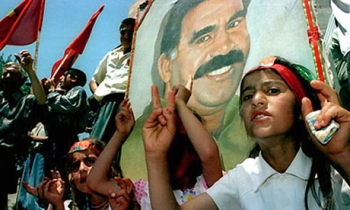What is the most influential Internet news outlet in South Korea? Opinions may differ but based on visitor numbers, it is Naver, the green Internet portal with some 15 million visitors every day.
Around six million people read news articles via Naver's news service daily, according to Internet research firm Ranky.com. Its news sources include over 80 media outlets, including newspapers, magazines, TV broadcasters, Internet news services and wire news agencies. The number of clicks on Naver news articles was 3.5 billion last month, meaning that on average every Korean read 73 articles on Naver.
But being most-read does not necessarily mean most trusted. One of the most notorious mistakes Naver ever made took place on Feb. 1.
"Is Kim Jung-il coming to Pusan OPEC?" was the top headline of the day. The editor obviously confused OPEC (Organization of the Petroleum Exporting Countries) with APEC (Asia-Pacific Economic Cooperation).
"The portal sites underestimate their influence on the public," said Joo Mi-jin of Citizen's Action Network, a non-profit organization that monitors the portal news service. "At least, they need to have a standard in news editing. They must admit that they are a powerful media, and they must have some responsibility for that."
Regardless of how much influence they have on the public, Web portals are not identified as news services by South Korea's media law. They don't produce articles; they only publish them. They have little legal responsibility over the content of the stories they select.
In 2004, actress Hwang Soo-jung sued Naver for 100 million won. She was arrested in 2001 for taking drugs, and a court guard posted a photo of handcuffed Hwang on Naver.
The defamed actress accused the portal of deliberately looking on while speculation ran high about the photo. However, last May, the court ruled that Naver is not responsibile for the incident, even if it knew the photo was acquired illegally.
"More and more people are becoming to hate Naver," said a former top-ranking executive of NHN, which operates Naver. "Especially, offline newspapers loathe it. So they are trying to raise the anti-Naver sentiment."
Money is the main reason for the hatred. According to the former executive, Naver pays only five million won per month to each sports newspaper for use of their content. The payment is lower for regular daily newspapers, he said.
Corrective Measures
Knowing that public concern is rising about the imbalance between the growing influence of portal news services and their lack of legal responsibility, the government and political parties have begun to push them.
Several lawmakers have been drawing up plans to modify media law to categorize major portals as newspapers. The Ministry of Culture and Tourism also held a public hearing on the issue earlier this month, as it plans to revise the law by the end of the year.
Feeling the heat, portals have begun to reshape their news services. Naver announced earlier this week that it will allow individuals to customize the front page of the news service, which will reduce its responsibility in news editing.
Naver also pledged to introduce the "link-out" system to improve the relationship with offline papers. A link-out system directs users to the Web site of each newspaper when they click on headlines, not to the portal's own Web page. Most foreign portals and search engines, such as Google, already use this system.
Daum, the second largest portal, has already replaced some of its news pages with the link-out system.
"Naver will lose a big portion of advertising sales if they shift to the link-out system. But they have no other choice, because they want to compromise with offline newspapers," the former executive said.
In legal terms, the portal's companies and their critics agree that they should not be subject to outdated media law established long before portals began to dominate.
"Portals are media. But they are new media," said Joo of the Action Network. "The old media law does not match with the dynamism and other unique characteristic of portals."
"This is an evolving industry, so there should be an exclusive law for this industry," agrees Kim Ji-hyun of K-Internet, an interest group of Internet companies.
Ethics problems
The public appears to care more about moral and ethical standards in editing than in legal categorizations.
"Papers have their own standard of editing, but portals care only about the number of clicks which lead to advertising sales," the former NHN executive said. "It is inevitable that they put the most sexy and provocative headlines on the top."
An NHN spokesperson said that there are no written ethical guidelines for Naver's news service, though the editors do discuss ethical situations case-by-case. Daum has set up an ethical guideline, but it is more a code of ethics than a practical guideline, its spokesperson said.
The portals have also been blamed for allowing users to post insulting and indecent comments in response to news articles. Users post more than 50,000 comments everyday on Naver's news service under pseudonyms. The company admitted they let them carry inappropriate expressions.
"We believe that insulting is a way of communication," said a Naver spokesperson. "Of course, there are some real bad comments that should be deleted. But we don't think it's necessary to punish all the people who post insulting comments."
The spokesperson said that Naver bans users who post malevolent comments for up to one month. But after that, they are free to write again and a permanent ban is extremely rare.
"All we do is to scare them, and we hope the users will voluntarily follow the rules," he said.









